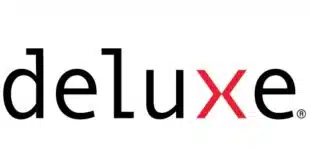Visa USA Inc.'s newly announced interchange pricing for its signature-based, or offline, debit cards are only the starting point for what will be many rounds of negotiations with larger regional and national retailers, say industry observers. Meanwhile, despite the new rate announcement from Visa, MasterCard International Inc. says it is not changing its previously announced position that it has no plans to change its signature-debit rates. The new rates for Visa check card, which the card company released late yesterday, take effect Jan. 31, 2004. They reflect rate reductions across the board as well as special rates for certain merchant categories, including gas stations, restaurants, and bill payment. The rate reduction follows news last week that Visa reportedly reached agreement on new, lower pricing with Wal-Mart Stores Inc. on check card acceptance as part of an effort to negotiate pricing deals with national chains accounting for much of the card's volume. “What Visa is doing now is cutting individual deals with merchants that make up most of the volume,” says Lloyd Constantine, the attorney who represented merchants including Wal-Mart and Sears, Roebuck & Co. in a class-action lawsuit against the card associations that was settled this past spring. He says the new check card rates from Visa represent “list prices” that only smaller retailers will likely pay, with regional and national chains negotiating private arrangements for lower interchange. “There's an auction process going on now,” he says. “When the dust settles this spring we'll see who's still accepting (signature-based debit) and at what price.” Visa released its new rates in accordance with the terms of the Wal-Mart settlement, which resulted in the card companies introducing interim rates Aug. 1 and agreeing to give 45 days notice of any new rates effective Jan. 31. Under the new Visa pricing, merchants who generate the largest volumes of transactions will pay 0.70% of the ticket plus 15 cents, down from the pre-settlement rate of 1.25% plus 10 cents that applied to virtually all merchants of any type or size, other than groceries, hotels, and car-rental agencies. Rates for smaller retailers are higher but still reduced from pre-settlement levels. To qualify for the lowest rate, merchants must account for a minimum of 35 million transactions annually totaling $2 billion in value. They must also maintain a maximum chargeback ratio of .018% and a fraud ratio of .022% or less. New pricing breaks have also been introduced at annual levels of 18 million transactions ($1 billion minimum value) and 6 million transactions ($300 million minimum value), with accompanying chargeback and fraud thresholds. For example, merchants who reach the 6-million-transaction level will pay 0.95% plus 15 cents. On a $45 ticket, this reduces their interchange a nickel to 58 cents. Also introduced are special rates for merchant categories Visa wants to penetrate. Gas stations will see their rate drop to 0.70% plus 17 cents. Restaurants will get pricing of 1.19% plus 10 cents. For both venues, Visa is dropping its requirement that the ticket presented for authorization must equal the settlement amount, a rule that had barred these merchants from getting reduced rates in the past. Supermarkets, which under the pre-settlement rate plan paid a flat 40 cents per transaction, will now pay fees ranging from 0.70% plus 15 cents to 0.95% plus 15 cents, but with a 35-cent cap. Credit card rates were not changed.
Check Also
Mastercard Looks to Support Stablecoins in a Deal With Wallet Provider MoonPay
The big card networks have worked for several years to exploit the growing business of …





